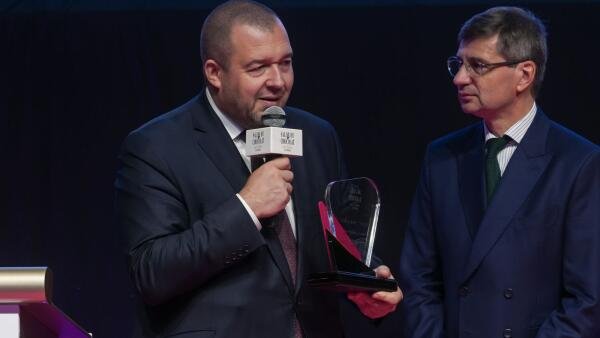As global markets remain volatile and currencies fluctuate, a growing
Samsung is beginning to lift the curtain on what could
Dubai once again sits firmly at the center of global
For more than 25 years, Oliver Hall has lived and
As global markets remain volatile and currencies fluctuate, a growing
Samsung is beginning to lift the curtain on what could
Dubai once again sits firmly at the center of global
For more than 25 years, Oliver Hall has lived and

Former Élysée Palace Chef Promotes Sustainable Gastronomy and the Power of Food in Diplomacy
As I settle in for my interview with Guillaume Gomez, the former chef of the Élysée Palace in France, the excitement in the air is palpable. Gomez, who recently graced Dubai as the esteemed Chief Guest at the Salon du Chocolat et de la Pâtisserie event held from September 18 to 20, is a name synonymous with haute French cuisine. He embodies the essence of culinary diplomacy, emphasizing how relationships between nations are often strengthened around the dining table.
When I pose the quintessential question—”What is your favorite dish?”—Gomez pauses, revealing a delightful anecdote instead. “While I was working at the Élysée Palace, First Lady Chirac once mentioned in an interview that her husband’s favorite dish was veal’s head. From that moment on, every trip and dinner he attended, he was served the same dish—until he grew tired of it,” he laughs. “Since that incident, I’ve made it a rule never to disclose my favorite dish.”
Born in Paris in 1978, Gomez’s love for cooking emerged early. “I’ve always wanted to be a chef,” he shares, recalling a kindergarten photo of himself in a chef’s outfit. Despite excelling academically, he chose a culinary path, joining culinary school at 14 and diving into the restaurant world through a dual study program.
Gomez’s big break came at just 18, when his first employer recommended him for a position at the Élysée Palace. “The palace, with its familial atmosphere, was a stark contrast to the rigorous kitchens of Michelin-starred restaurants. It is here that I learned what teamwork really means,” he reflects. Demonstrating an innate talent for French cuisine, he mastered classic techniques with precision and creativity, earning the prestigious title of “Meilleur Ouvrier de France” (MOF) at the tender age of 25.
From 1997 to 2021, Gomez served four French presidents—Jacques Chirac, Nicolas Sarkozy, François Hollande, and Emmanuel Macron—at the Élysée Palace. As head chef, he was responsible for crafting exquisite meals for heads of state and dignitaries. Despite the glamour often associated with state dinners, Gomez reveals a different reality. “These dinners are quite brief, typically lasting no more than an hour. There’s simply no time for a 10-course showcase of French cuisine. It’s usually just one starter, a fish or meat dish, and, of course, cheese—but everything must be served swiftly,” he explains.
He highlights the significance of gastronomy in diplomacy: “Food is a powerful way to maintain these important friendships.”
Towards the end of his tenure at the palace, Gomez shifted focus toward sustainability in gastronomy. “When we planned the menu, we sought seasonal produce and healthy recipes,” he shares. In 2021, he left the Élysée to become an ambassador for French gastronomy. “I am the personal representative of the French president and the link between him and the world of gastronomy,” he explains. His mission is to promote France as a gastronomic destination, showcasing the unique flavors and ingredients of its diverse regions.
“French cuisine is not just about Michelin-starred restaurants; it is mindful cuisine—it should be good for your health and made from ingredients sourced from responsible producers,” he adds. Gomez is passionate about educating the next generation of chefs and food enthusiasts, frequently collaborating with culinary schools and institutions to share his expertise and passion for French cuisine.
He emphasizes responsible food practices, advocating for local, seasonal sourcing and reducing food waste. Gomez’s philanthropic efforts span various causes, including cancer research, disability integration, and environmental protection. As a patron of the Hop food association, he aims to combat food waste and assist those in precarious situations.
His first personal recipe book sold 18,000 copies, with all proceeds going to charity, and his subsequent children’s version won the World Cookbook Awards’ best children’s book in the world.
Gomez believes the future of gastronomy lies in social, societal, and environmental responsibility. “Eating a tomato mozzarella salad in Paris in December is an economic, gustatory, and environmental nonsense!” he asserts. For him, the nobility of a product stems from its seasonality, taste, and terroir. He prioritizes quality over quantity in meat consumption and emphasizes the importance of supporting farmers and producers who respect their animals and the land.
“For Gomez, ‘Eating is a political act,’ and change comes through education and action. Over 20 years, he has trained nearly 400 students annually, stressing the importance of eating well. ‘Gastronomy is a chain, and chefs are only one link among others in that chain. Tomorrow’s gastronomy is one we will all create together.'”
Whether in the kitchen or advocating for social causes, Gomez is a chef who seeks to nourish not just the body but the soul, reminding us that good food can forge connections, celebrate cultures, and promote a sustainable future.